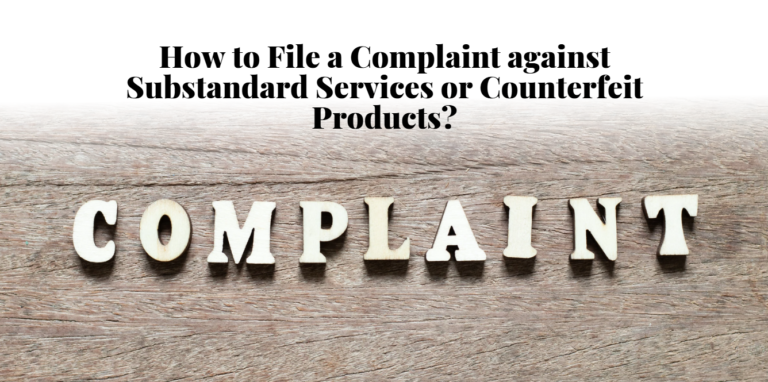Now a days Running a business is both rewarding and challenging. One of the most important subject of managing a successful business is ensuring that your contracts are clear, enforceable, and designed to prevent disputes. Whether you’re a create small business , an entrepreneur, or a corporate executive, contract disputes can be costly, time-consuming, and damaging to your reputation.
In this our comprehensive guide, we’ll explore how to avoid business contract disputes, provide our expert legal solutions. By the end of this article, you’ll have a clear understanding of how to protect your business and foster trust in your professional relationships.
Why Contract Disputes Happen
when you create a business Before diving into solutions, it’s essential to understand why contract disputes occur in the first place. Here are the most common causes:
Ambiguous Language
when Contracts filled with vague or unclear terms can lead to different interpretations. For the example, a clause stating “payments will be made upon completion” doesn’t specify what “completion” are entails. Does it means delivery of goods, approval of work, or something else?
Unrealistic Expectations
Sometimes, business parties make promises they can’t keep. For instance, a vendor might agree to an unrealistic deadline to secure a contract, only have to fail later.
Breach of Contract
when A breach occurs, one party fails to fulfill their obligations. This could be non-payment, late delivery, or subpar performance.
Poor Documentation
Missing or incomplete contracts are a recipe for disaster. Without a written agreements, it’s challenging to prove what was agreed upon.
Changes in Circumstances
in the business there are External factors like economic downturns, supply chain disruptions, or regulatory changes can makes it difficult for parties to meet their obligations.
Understanding these root causes is the first step toward preventing disputes.
How to Avoid Business Contract Disputes
Preventing contract disputes requires proactive measures. Here are seven strategies to help you avoid conflicts:
1. Draft Clear and Detailed Contracts
A well-drafted contract is your first line of defense. Ensure that every term, condition, and obligation is clearly defined. Use simple, straightforward language and avoid unnecessary legal jargon. Include specifics such as:
Scope of Work: What exactly is being delivered or performed?
Payment Terms: When and how will payments be made?
Deadlines: What are the timelines for deliverables?
Termination Clauses: Under what conditions can the contract be terminated?
For example, instead of saying, “Payment will be made upon completion,” specify, “Payment of $10,000 will be made within 30 days of the client’s written approval of the final deliverable.”
2. Conduct Due Diligence
Before entering into an agreement, research the other party. Verify their credibility, financial stability, and track record. For instance, if you’re hiring a contractor, check their references and past projects. This reduces the risk of partnering with unreliable entities.
3. Include Dispute Resolution Clauses
Specify how disputes will be resolved—whether through mediation, arbitration, or litigation. A well-drafted dispute resolution clause can save you time and money. For example:
Mediation: A neutral third party helps both sides reach an agreement.
Arbitration: A neutral arbitrator makes a binding decision.
Litigation: The dispute is resolved in court.
Including these clauses ensures both parties know the process and can avoid costly court battles.
4. Regularly Review and Update Contracts
Business needs evolve, and so should your contracts. Periodically review and update agreements to reflect current circumstances and legal requirements. For example, if your business expands to new markets, ensure your contracts comply with local laws.
5. Seek Legal Advice
Always consult a qualified attorney when drafting or reviewing contracts. They can identify potential pitfalls and ensure your agreements are legally sound. For instance, an attorney can help you include clauses that protect your intellectual property or limit liability.
6. Communicate Effectively
Open and honest communication is key to preventing disputes. Regularly check in with the other party to ensure everyone is on the same page. If issues arise, address them promptly before they escalate.
7. Use Technology
Contract management software can help you organize, track, and update contracts efficiently. These tools often include features like automated reminders for deadlines and renewal dates, reducing the risk of oversights.
Legal Solutions for Contract Disputes
Despite your best efforts, disputes can still happen. Here are some legal solutions to consider:
1. Negotiation
The simplest and most cost-effective solution is negotiation. Both parties can discuss the issue and reach a mutually acceptable resolution. For example, if a vendor misses a deadline, you might agree to extend the timeline in exchange for a discount.
2. Mediation
A neutral third party can help facilitate a resolution. Mediation is less formal than court and often preserves business relationships. For instance, a mediator might help a landlord and tenant agree on revised lease terms.
3. Arbitration
Arbitration involves a neutral arbitrator who makes a binding decision. It’s faster and more private than litigation. For example, a construction company and client might use arbitration to resolve a dispute over project delays.
4. Litigation
If all else fails, litigation may be necessary. While it can be time-consuming and expensive, it provides a formal resolution through the court system. For instance, a business might sue a supplier for breach of contract if they deliver defective goods.
Real-Life Examples of Contract Disputes
To illustrate the importance of proper contract management, let’s look at two real-life examples:
Case Study 1: Ambiguous Language Leads to Dispute
A small business hired a marketing agency to run a campaign. The contract stated, “Payment will be made upon completion of the campaign.” However, the agency interpreted “completion” as the end of the campaign, while the business interpreted it as achieving specific sales targets. The dispute escalated, resulting in legal fees and damaged relationships.
Lesson Learned: Clearly define terms like “completion” to avoid misunderstandings.
Case Study 2: Breach of Contract in Construction
A construction company agreed to complete a project within six months. Due to supply chain issues, the project was delayed by three months. The client sued for breach of contract, claiming financial losses.
Lesson Learned: Include force majeure clauses to account for unforeseen circumstances like supply chain disruptions.
FAQs About Business Contract Disputes
1. What should I do if the other party breaches the contract?
Document the breach and notify the other party in writing. Consult your attorney to explore legal remedies, such as compensation or termination of the contract.
2. Can verbal agreements be legally binding?
In some cases, yes. However, verbal agreements are harder to enforce. Always put agreements in writing to avoid disputes.
3. How can I ensure my contract is enforceable?
Ensure the contract includes all essential terms, is signed by both parties, and complies with relevant laws. Consulting an attorney can help.
4. What is the difference between mediation and arbitration?
Mediation is non-binding and involves a mediator who helps parties reach an agreement. Arbitration is binding, with an arbitrator making the final decision.
5. How long does it take to resolve a contract dispute?
It depends on the complexity of the case and the resolution method. Negotiation or mediation can take weeks, while litigation may take months or years.
6. Can I modify a contract after it’s signed?
Yes, but only if both parties agree to the changes. Document any modifications in writing and have them signed by all parties.
7. What are the costs involved in resolving a contract dispute?
Costs vary based on the resolution method. Negotiation and mediation are generally cheaper, while litigation can be expensive due to legal fees and court costs.
Conclusion
Business contract disputes can be stressful and costly, but they are often preventable. By drafting clear contracts, conducting due diligence, and seeking legal advice, you can minimize the risk of conflicts. If a dispute does arise, explore resolution methods like negotiation, mediation, or arbitration before resorting to litigation.
At our law firm, we specialize in helping businesses navigate contract-related challenges. Our experienced attorneys can draft, review, and enforce contracts to protect your interests. Contact us today for a consultation and ensure your business is safeguarded against potential disputes.












